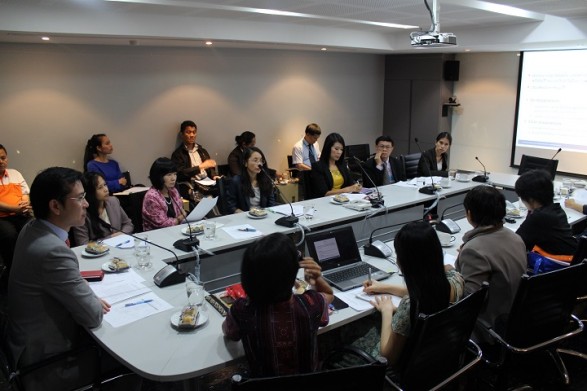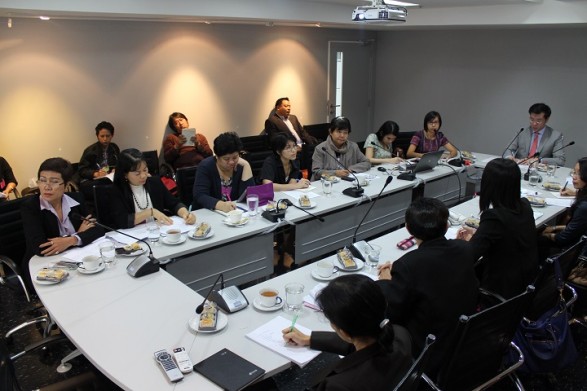A Consultation on ‘the AICHR’s Thematic Study on Migration’

A consultation on ‘the AICHR’s thematic study on Migration’ was organised by H.E. Dr. Seree Nonthasoot, Thailand representative to the AICHR, on 17 October 2013, at Institute of Research and Development for Public Enterprises in Bangkok, Thailand. Participants of this consultation included experts in the field of migration, who are from relevant government agencies (Ministry of Labor, Office of the National Security Council and Immigration Bureau), academic institutes and Civil Society Organizations (CSOs).

Preparing studies on thematic issues is one of the AICHR’s mandate as stipulated in Article 4.12 of its Terms of Reference. All ASEAN Member States are assigned to submit their national reports to Indonesia, the focal country for the thematic study on ‘Migration’. Thailand representative has appointed Ms. Nussara Meesen to be a researcher who is responsible for Thailand’s national report on migration.

The purpose of this consultation was to gather opinion and information regarding migration management in Thailand from the participants with a view to further revising and strengthening the national report. Thailand representative to the AICHR highlighted an increase in significance of the issue of migration since the ASEAN community will commence at the end of 2015. In Thailand, statistically there were 1,102,000 legal migrants in 2013 and around 90 per cent of them were from Myanmar. This number is expected to increase after the commencement of the ASEAN community. Thailand Representative further stated that Thailand should be well-prepared on management of both in and out migration. In addition, there were several crucial issues and concerns raised by the participants. For example, issues of gender in migration, such as sexual harassment in workplaces, provision of social welfares and inequality of wages between female and male laborers should all be included in the national report. The meeting also agreed that effective mechanisms, measures and policies are needed in both receiving and sending countries in order to manage challenges of migration, such as illegal migrants and brokers, poor living and working conditions of migrants and exclusion of some particular groups of migrants, especially those who are stateless. Furthermore, the meeting agreed that concrete action should be further taken in the regional level, for example, establishment of a mechanism to respond to migrants’ complaints regarding human rights violation and adoption of legally-binding instruments on promotion and protection of the rights of migrant workers in ASEAN.
The national report on ‘Migration management and human rights’ will be revised based on all inputs from the consultation before submitting to the focal country. The thematic study on Migration is expected to be completed in 2014.
